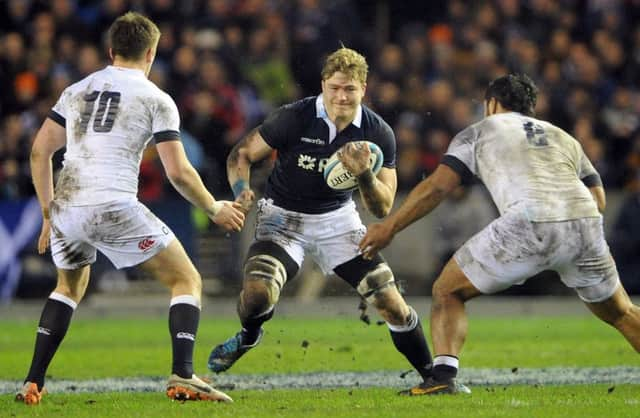No quick fix to restore Scotland’s fortunes


In particular we have to find a better way of managing the transition from the amateur youth game to the adult professional one. The obstacles are many. To take an obvious one, we can’t hope to replicate the English system. The top clubs there each have their own academy and academy teams play against each other. We don’t have the numbers or money for that, and probably never will.
However, getting our youth and new academy systems right will take years, at least five I would guess. Meanwhile we cannot afford to continue to trail along as an also-ran in the Six Nations, or indeed in the new European club competition that will succeed the Heineken. It’s worth repeating how bad our record has been. Since the Five Nations became Six in 2000, there has been only one season in which we have won three matches in the tournament. Edinburgh have qualified only twice for the knock-out stages of the Heineken and Glasgow have never done so. We are looked on by others with sympathy, pity or contempt.
Advertisement
Hide AdAdvertisement
Hide AdWe can all come up with a list of complaints or mistakes made: The failure to provide Edinburgh with a proper club ground; the narrowing of the already narrow base which followed the closure of our third pro team in the Borders. We can point to poor or inconsistent selection and bad decisions made by coaches. What we can’t do is deny that we have fallen far behind others and successive coaches of the national team, whatever their ability and experience, haven’t been able to deliver the victories we need.
It’s evident that there is no easy or quick cure, and railing at the failures, real or imagined, of the SRU hierarchy is more satisfying than useful. We are where we are and, in the immediate future, will struggle to be elsewhere. Nobody should suppose that the incoming coach, Vern Cotter, can wave a wand and put things right.
We have good players, some of whom would shine more brightly in a better team. Yet we can’t dodge disagreeable facts. Only three Scots – Stuart Hogg, Sean Maitland and Richie Gray – were in the original Lions selection last summer. Would there be even that many if there was a Lions tour this year? David Denton was the only Scot in the long list for the 2014 Player of the Six Nations tournament.
Meanwhile, depressingly, we are still going for the immediate – or three-year – fix, scouring the southern hemisphere for players with a Scots Granny and for others willing to qualify by residence. Yet, with rare exceptions such players come here because they have realised that they are not good enough to represent the country of their birth. Is such recruitment a good use of our cash-limited resources? Shouldn’t we restrict imports to the very few players who are already internationals and who may make a real difference to Edinburgh or Glasgow?
There is seemingly going to be more money coming our way from the new European competitions. What is the best use for it? Spending on the new re-vamped academies? Investing, preferably in partnership with business, in a much-needed third pro team? Both are desirable. Neither will bring a quick return in improved standards and performance. Long-term vision is necessary. But so also is finding some means of improving the immediate record of the national team. If we are to maintain interest in the game here in Scotland, we need more success. We certainly can’t afford to spend the next five years competing with Italy to avoid the wooden spoon.
I reckon that, since the last World Cup in the autumn of 2011, there are some 50 players still active in the game who have featured in the Scotland team. Andy Robinson and Scott Johnson have cast their nets wide without much success. Both have spoken repeatedly of the need for competition for places and for strength in depth. But having competition and depth doesn’t, as we have seen, necessarily result in victories. One has the feeling that the sooner our new coach settles on a squad of little more than half that number and sticks to it, barring injuries, the better our chance of improving our dismal record.
A club side, together for months on end, can afford to practise rotation, and may indeed need to do so. But a national team, playing eight matches between the beginning of November and the end of March, might benefit from continuity of selection. Giving a captain authority, sticking with him, and having him on the field for the whole game, might also help. Talk of several leaders in a team obscures the fact that you need a captain in charge. Chris Robshaw may not be the greatest flanker. Some would say he isn’t the best 7 in England. But England’s revival evidently owes much to his leadership on and off the pitch.
We have fewer resources than our rivals, and can win matches only if we make the best use of those we have. This is something we haven’t done for a long time now. It is only when we see that it is very hard to get into the Scotland team that we may achieve some success and regain the respect that we have unquestionably lost in the past 15 years.